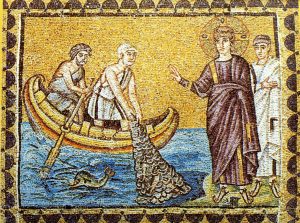 On the First Sunday of the Great Fast, we heard the words from Hebrews, “Therefore, since we are surrounded by so great a cloud of witnesses, let us rid ourselves of every burden and sin that clings to us and persevere in running the race that lies before us while keeping our eyes fixed on Jesus, the leader and perfecter of faith. The whole forty-day journey through the Great Fast, to the Holy Week of our Lord’s Passion, and then through the fifty days of his resurrection and glorification, sending us the Holy Spirit to be with us always, we have kept our eyes fixed on Jesus. With open hearts we will find the perfection of our faith. This Epistle was repeated on All Saints’ Sunday, for those who have given themselves to Christ are the cloud of witnesses that support and strengthen our faith.
On the First Sunday of the Great Fast, we heard the words from Hebrews, “Therefore, since we are surrounded by so great a cloud of witnesses, let us rid ourselves of every burden and sin that clings to us and persevere in running the race that lies before us while keeping our eyes fixed on Jesus, the leader and perfecter of faith. The whole forty-day journey through the Great Fast, to the Holy Week of our Lord’s Passion, and then through the fifty days of his resurrection and glorification, sending us the Holy Spirit to be with us always, we have kept our eyes fixed on Jesus. With open hearts we will find the perfection of our faith. This Epistle was repeated on All Saints’ Sunday, for those who have given themselves to Christ are the cloud of witnesses that support and strengthen our faith.
The Great Fast and the Holy Pentecostarion take up almost a third of the year of faith. Today we begin a second “third,” the proclamation of the Gospel of St. Matthew, which we read until the Feast of the Exaltation of the Cross. This period again begins by summoning us to always “keep our eyes fixed on Jesus.” Today we are Simon and Andrew and James and John, hearing the voice of Jesus, “Come, follow me.” Today we hear the Lord calling us calling us to a life like his of caring for others and proclaiming the gospel, if not by words, by our actions and lives.
Meditation by Archpriest David Petras
 On June13, 2017, the film “Bitter Harvest” will be released on DVD in the United States! A love story, set against the backdrop of the 1932-33 Holodomor in Ukraine. Produced by prominent Ukrainian-Canadian Ihor Ihnatowycz, the film brings the tragedy of the famine-genocide to audiences around the world. (
On June13, 2017, the film “Bitter Harvest” will be released on DVD in the United States! A love story, set against the backdrop of the 1932-33 Holodomor in Ukraine. Produced by prominent Ukrainian-Canadian Ihor Ihnatowycz, the film brings the tragedy of the famine-genocide to audiences around the world. (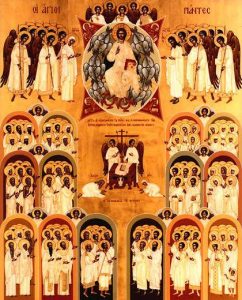 Over the last fifty-some days, we have celebrated the Paschal mystery – the central mystery of our faith, from our Lord’s crucifixion, resurrection, ascension to his sending the Holy Spirit on his followers. This Sunday, after all that has been proclaimed, we add a great “Amen!” “So be it!” This “Amen” will be great only if we make it more than just words but also actions. The Holy Spirit came upon the disciples that they might be witnesses to the Paschal myster
Over the last fifty-some days, we have celebrated the Paschal mystery – the central mystery of our faith, from our Lord’s crucifixion, resurrection, ascension to his sending the Holy Spirit on his followers. This Sunday, after all that has been proclaimed, we add a great “Amen!” “So be it!” This “Amen” will be great only if we make it more than just words but also actions. The Holy Spirit came upon the disciples that they might be witnesses to the Paschal myster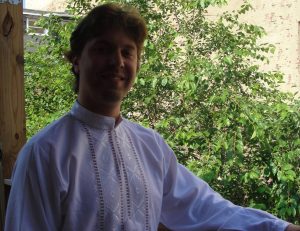 Pavel Gintov will be in New Haven on June 17th.
Pavel Gintov will be in New Haven on June 17th.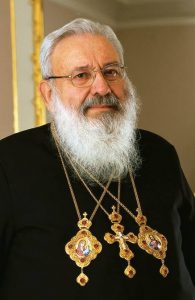 To His Beatitude, Sviatoslav Shevchuk
To His Beatitude, Sviatoslav Shevchuk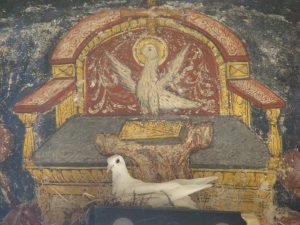 Saint Gregory of Nazianzus says of the Holy Spirit’s appearance as a dove at Christ’s baptism:
Saint Gregory of Nazianzus says of the Holy Spirit’s appearance as a dove at Christ’s baptism: